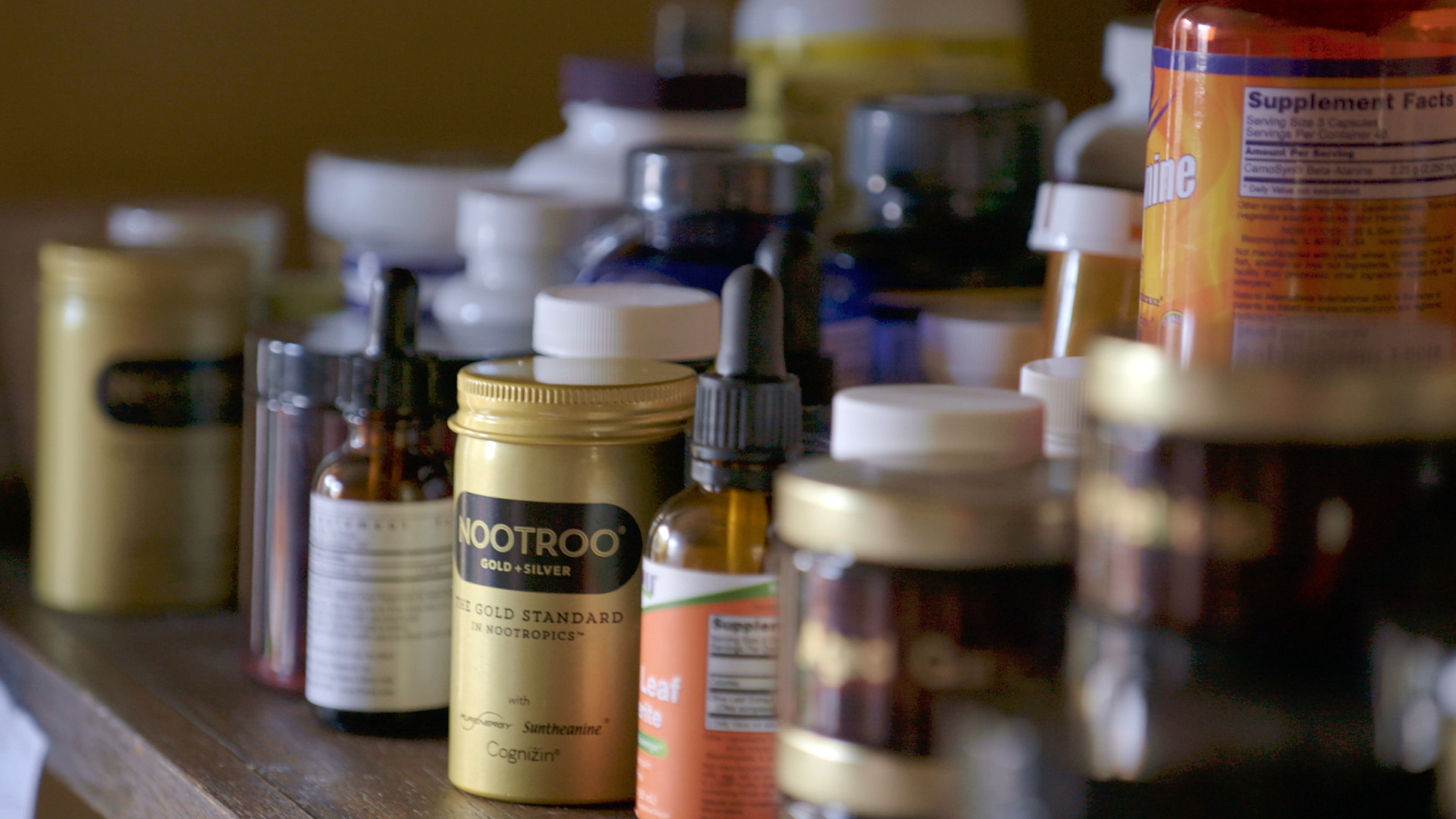Learn about brain health and nootropics to boost brain function
A beginner’s guide to using ‘smart drugs’

“Smart drugs,” also known as nootropics, are drugs and supplements that purport to boost creativity, memory, concentration and motivation. The pursuit of productivity by “hacking” one’s health is happening everywhere, but perhaps most notably in Silicon Valley where many of Dr. Molly Maloof’s patients live and work. Maloof, as seen in the documentary Channel film Smart Drugs, is a physician who specializes in helping professionals from engineers to start-up founders biohack safely.
Here, she answers some of the most common questions about cognitive supplements.
Who is using smart drugs and other cognitive enhancers?
Molly Maloof: It seems to be mostly people in their twenties and thirties. I started using nootropics in high school.
Why are they choosing to do this?
MM: People are always looking for new ways to boost performance and gain a competitive edge. Nootropics have gotten a lot of buzz, and they’re generally easy to obtain.
Why are they so accessible now?
MM: The ease of ordering off the internet — and the amount of education available online.
What’s changed to spur the trend toward nootropics?
MM: Tons of sellers. The dark web.
What’s the biggest myth about cognitive supplements and smart drugs?
MM: That they somehow work better than consistently doing the basics like exercising, [focusing on] nutrition, sleeping and reducing stress.
What are the biggest dangers people need to be aware of?
MM: Quality control is almost nonexistent; it’s super easy to get bad stuff with all sorts of additives that could be harmful or get something that isn’t even what it says it is. Before you take any particular drug or dietary supplement, you should consult with a doctor and do thorough independent research.
Who should not be experimenting with smart drugs?
MM: Anyone with a serious psychiatric disorder or a history of psychosis; anyone not willing to accept the risks or side effects — things like headaches, insomnia, mood imbalance, digestive upset or even lucid dreaming; and anyone who has not thoroughly educated themselves on these risks and side effects.
What are the main health benefits to using cognitive enhancers?
MM: Generally, people pursue them for greater calm, increased flow state, greater focus and more creativity.
Is there any scientific research that proves using smart drugs is effective?
MM: Nootropics are an interesting and potentially very useful class of drugs, but they need further research. Basic science research is used for marketing hype, but it doesn’t establish that the drugs actually work.
What are the most popular drugs and supplements out there?
MM: Theanine; magnesium; phenibut; caffeine; GABA; CBD — which is definitely psychoactive; racetams; choline derivatives; 5-HTP; and tryptophan.
What advice do you have for someone thinking of using smart drugs?
MM: Focus on lifestyle first. Nootropics are just detailing on the car, but you can get a whole new car with better diet, exercise, stress reduction and sleep.
What’s the best way to hack our brain?
MM: I take magnesium every day, which improves brain health and may have some ability to boost cognition. Most of the people I see in my practice are deficient in magnesium and need to supplement with it. And I use one of the most popular smart drugs, caffeine, every day. Arguably, most people are addicted to caffeine. But personally, [I think] life is better with coffee and tea.
Where can people find reliable information about smart drugs?
MM: You definitely have to do your research. I would say Neurohacker Collective, [which makes] Qualia nootropics; Baze, [which makes] personalized supplements; and Perfect Keto, since ketosis is a cognitive enhancer, are among the most reliable sources of information.
Watch Smart Drugs on the documentary Channel.
[Editor's note: Many nootropic drugs and supplements are not regulated by Health Canada.]
Click here to view full article